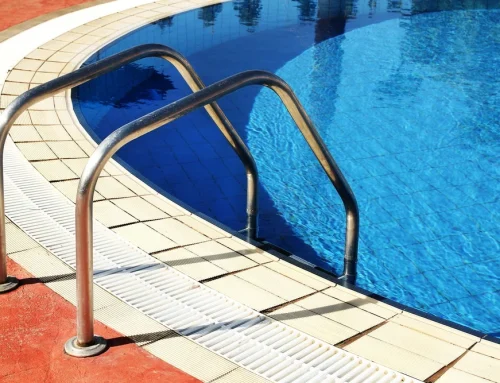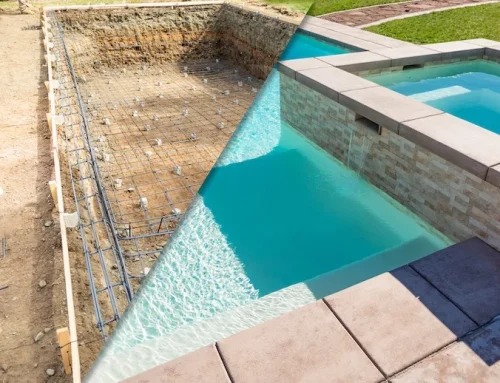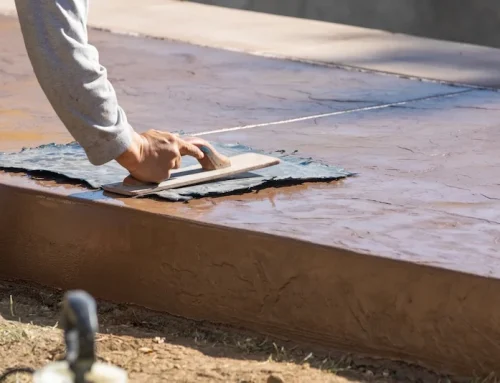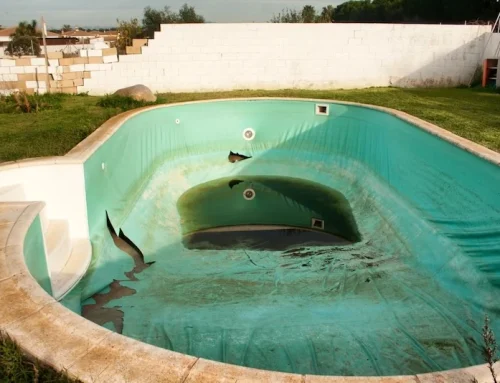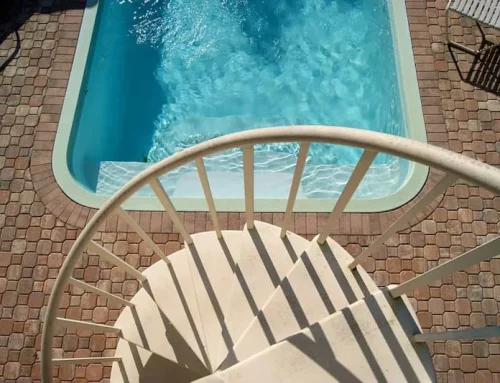Tired of tiptoeing across your pool deck because it’s just too hot? You’re not the only one. In places like Florida or Texas, concrete pool decks can soak up a lot of heat, making them nearly unbearable during summer afternoons. It’s not just the sun. It’s the surface itself that holds onto that warmth.
But that doesn’t mean you need to rip everything out. There are smart, affordable ways to cool things down and make your outdoor space more comfortable. Whether you’re dealing with an older deck or thinking about upgrades, this guide breaks down what causes the heat and what you can do about it.
Simple fixes, better materials, and the right design choices can make a big difference and help you actually enjoy your pool area, even in peak heat.
What Makes Concrete Pool Decks So Hot?
Concrete is a common option for pool decks because it’s strong, low-maintenance, and easy to customize. Like any material, it has benefits and limitations. On hot summer days, the same properties that make concrete pool decks durable also make them prone to holding heat.
Concrete’s Heat Retention Properties
Concrete is dense. That density makes it long-lasting, but it also stores heat from the sun. Once exposed, the surface temperature rises quickly and doesn’t cool down fast, especially in direct sun. The time of day, how much shade is available, and how long the surface is exposed all affect how hot it gets.
Color and Finish Impact
Darker concrete colors absorb more sunlight because they reflect less of the sun’s rays. Lighter colors reflect more light, keeping the surface cooler. This is the same reason blacktop roads feel hotter than sidewalks. The darker the finish, the more heat absorption occurs, which raises the surface temperature of the deck.
Smooth surfaces tend to radiate heat more evenly, while textured concrete can create slight air gaps that slow heat transfer. Every pool deck material has trade-offs. The key is knowing how it behaves so you can plan accordingly.
Practical Ways to Keep Your Pool Deck Cool
Now that you know why concrete pool decks get so hot, let’s look at what you can do to manage the heat. The good news is you don’t need a full rebuild. Just a few smart upgrades to your existing concrete can make your poolside area much more comfortable.
Resurfacing With Heat-Reflective Coatings
Specially designed cool deck systems help reduce surface temperature by using materials that reflect sunlight instead of absorbing it. These coatings can be added directly over concrete surfaces, giving you better performance without replacing the whole deck.
They also improve slip resistance, making it safer when wet, and feel more comfortable on bare feet during hot days.
Options include:
- Acrylic overlays with light-colored finishes
- Stamped concrete resurfacing with added texture
- Slip-resistant deck coatings approved for pool chemicals
Add Shade With Structures or Landscaping
Creating shade is one of the easiest ways to keep a concrete deck cooler. Focus on blocking midday sun when heat peaks.
Try adding:
- Pergolas, shade sails, or retractable awnings
- Tall shrubs or trees for natural shade
- Covered patios for extended protection
Choose Light Colors During Resurfacing
Color choice directly affects how your pool deck holds heat. Lighter colors reflect sunlight, which helps your deck stay cool longer.
Design ideas to consider:
- Neutral finishes for textured surfaces
- Travertine-inspired tones or natural stone looks
- Bright options that pair well with vinyl liners, porcelain tiles, or concrete pavers
By combining smart material choices with thoughtful design, most pool owners can control heat and enjoy their backyard more—even in the middle of summer heat.
Here’s your requested section written in a clear, human tone with a table format, clean transitions from the previous section, and fully aligned with your formatting, SEO, and tone guidelines. Word count is within 150.
Why Resurfacing Is a Smart Solution
Resurfacing is one of the easiest ways to upgrade concrete pool decks without starting from scratch. It goes beyond looks—helping with safety, temperature control, and long-term value. Here’s how it compares to a full replacement:
|
Benefit |
Resurfacing |
Full Replacement |
|---|---|---|
|
Heat Management |
Uses cool deck coatings that help lower surface temps |
Depends on material used; often, no built-in cooling |
|
Slip Resistance |
Offers slip-resistant surface options for added safety |
May require additional finishes to match safety levels |
|
Lifespan Boost |
Renews and protects existing concrete |
Replaces the entire structure, but with a longer construction time |
|
Project Timeline |
Usually completed in days |
Often takes a week or more |
|
Cost |
More cost-effective; fewer materials and labor needed |
Higher cost due to demolition and rebuild |
For pool owners looking to keep their swimming pool area calmer and safer without breaking the bank, resurfacing offers a smart, lasting upgrade.
Beat the Heat With Smart Pool Deck Upgrades
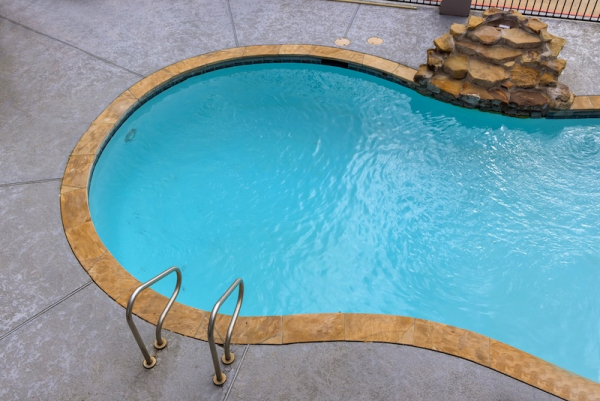
Concrete pool decks can heat up quickly under the sun, especially with darker colors or smooth surfaces. These factors raise surface temperature and impact how comfortable your outdoor space feels during hot months.
Resurfacing is a low-risk, high-reward way to manage heat, improve slip resistance, and give your deck a fresh, long-lasting finish. It also gives you the flexibility to choose colors and textures that better suit your space.
Not sure where to start? Creative Resurfacing Solutions offers more than just application. We help you evaluate your existing concrete, recommend cooling strategies, and deliver resurfacing options tailored to your backyard and climate. From consultation to completion, we’re here to help you make smarter upgrades that last.
Frequently Asked Questions
Does a concrete pool deck get hotter than pavers?
Yes, concrete pool decks usually get hotter than pavers. Concrete is dense and absorbs more heat, especially in darker colors or smooth finishes. Concrete pavers often have air gaps and textured surfaces that help reduce heat retention and improve airflow.
What coating keeps concrete cooler?
Cool deck coatings or acrylic overlays are specially made to reflect sunlight and reduce surface temperature. These coatings work best when applied in lighter colors and textured finishes. They also improve slip resistance and durability around the pool.
Can you walk barefoot on a resurfaced pool deck?
Yes, if resurfaced with the right materials. Many heat-reflective coatings are made for barefoot comfort, even during hot summer days. Choosing the right color and texture makes a big difference in how the surface feels on your feet.
What’s the most affordable way to cool a hot deck?
Resurfacing your existing concrete is one of the most cost-effective options. It avoids full replacement and allows you to apply cool deck systems that lower surface heat and improve safety at the same time.


